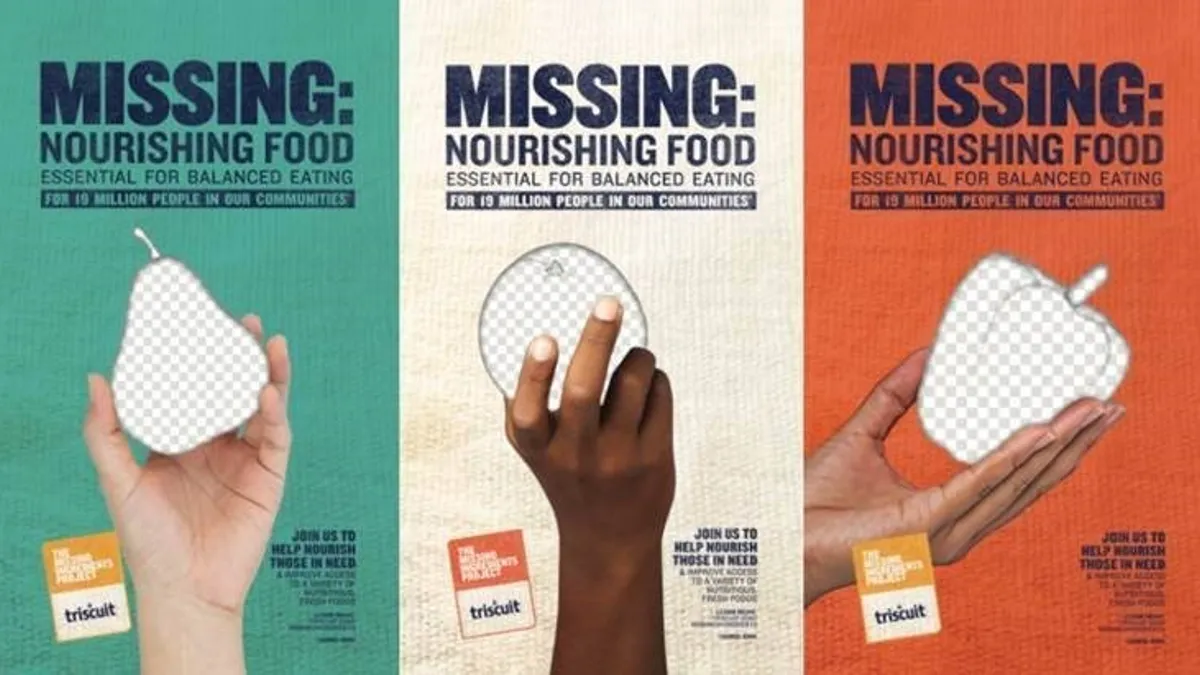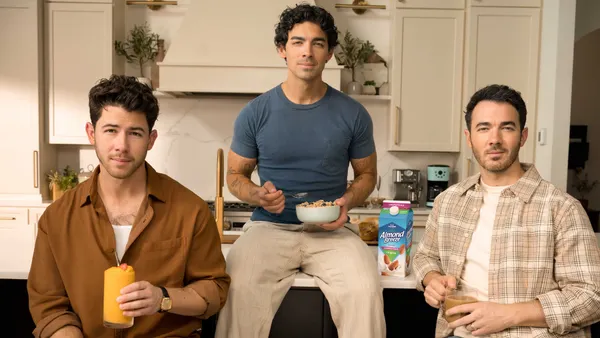Dive Brief:
- Mondelez's Triscuit brand of crackers this week launched its first purpose-driven campaign to help people find more nutritious food in areas that lack supermarkets. "The Missing Ingredients Project" intends to raise awareness around the problem of food deserts and grant $1 million to people and nonprofits working to improve access to fresh food, according to a company announcement.
- Triscuit kicks off the campaign this week with a 30-second spot, special microsite, QR-enabled print ad in The New York Times and banner ads on the newspaper's website. It is also partnering with celebrity chefs Nina Compton and Ludo Lefebvre to expand the purpose-based campaign's reach.
- Triscuit early next year will ask local nonprofits to apply for one of 20 grants to support their work, arriving as its parent company Mondelez introduces a new global marketing strategy that's centered around fostering human connections. The brand will award six grants next year, and the remaining 14 in the following two years, per its announcement.
Dive Insight:
Triscuit's first purpose-driven campaign aims to highlight the problem of food deserts in parts of the U.S. and demonstrate the brand's commitment to social issues. The campaign comes as many nonprofits seek donations on Giving Tuesday, an occasion that is meant to counterbalance the consumerism of the holiday shopping season. The coronavirus pandemic and protests against racial inequality have made social issues especially acute this year, with many consumers saying businesses have a responsibility to help solve them. By demonstrating its commitment to a cause, Triscuit can nurture positive sentiment toward its brand — especially among younger folks who tend to favor businesses that give back to the community.
"Millions of people live in areas where they cannot find essential nourishing ingredients needed for a balanced diet, only been made worse by the pandemic," Sally Barton, senior brand manager at Mondelez International, said in a statement. "It's a crisis that demands our attention, and as a brand, we knew we had to take action."
Food deserts are low-income regions where 500 or more people, or at least 33% of the population, live more than one mile away from the nearest supermarket, supercenter or large grocery store for an urban area, or greater than 10 miles for a rural area, according to the United States Department of Agriculture (USDA). Food deserts have become a bigger concern with about 19 million people — 6.2% of the U.S. population — living in urban or rural areas that lack access to affordable, healthy food including fresh fruits and vegetables, per USDA data cited by Triscuit.
The cracker brand's "Missing Ingredients Project" can help to support positive consumer sentiment toward the brand as parent company Mondelez ramps up its new global marketing strategy of "humaning." The company describes the effort as a consumer-centric approach to creating purposeful connections with people. Humaning also unites the company's marketing with its diversity and inclusion (D&I) efforts, as seen with the #ProudParent platform for its Oreo cookie brand. As part of that effort, Oreo partnered with an LGBTQ nonprofit to release rainbow-colored cookies last month, while Cadbury Dairy Milk's "Donate Your Words" campaign urged people to reach out to the elderly in the U.K.










